DETROIT – UAW President Shawn Fain announced today that General Motors will include electric vehicle battery production work in the UAW’s national master agreement with the company. GM’s commitment is a historic step forward, guaranteeing that the transition to electric vehicles at GM will be a just transition that brings good union jobs to communities across America.
Fain made the announcement just after 2 p.m. on Facebook Live. He also announced that UAW negotiators had made major progress in negotiations with all three automakers. As a result, the union will not expand its Stand Up Strike this week against any of the Big Three, though the UAW may call other members to Stand Up at any time if companies fail to make further progress toward a fair agreement.
Here is the full transcript of UAW President Shawn Fain’s Facebook Live:
Good afternoon UAW family,
It’s happened again. Moments before this broadcast, we have had a major breakthrough that has not only dramatically changed negotiations but is going to change the future of our union and the future of our industry.
We were about to shut down GM’s largest money maker, in Arlington Texas. The company knew those members were ready to walk immediately. Just that threat provided a transformative win. GM has now agreed in writing to place their electric battery manufacturing work under our national master agreement.
We have been told for months this is impossible. We have been told the EV future must be a race to the bottom. We called their bluff.
What this will mean for our membership cannot be understated. The plan was to draw down engine and transmission plants, and permanently replace them with low-wage battery jobs. We had a different plan. And our plan is winning at GM. And we expect it to win at Ford and Stellantis as well.
So today, we are going to give some updates on the state of bargaining. If it wasn’t clear already, things move fast. It’s hard to give an update that won’t be obsolete by the time the update is done. So here’s a snapshot, and a punchline.
Here’s the snapshot: GM has been falling behind. Today, under threat of a major financial hit, they leapfrogged the pack in terms of a just transition. And here’s the punchline: Our strike is working. But we’re not there yet.
Everything we’ve done to this point has been with one goal in mind: to win a record contract that reflects the Big Three’s record profits, and the historic sacrifices our members have made to generate those profits. We have been very public about our demands, about our expectations, and about our priorities.
Everybody and their brother knows that we have been fighting for economic justice, for a just transition, for COLA, for meaningful wage increases, for retirement security, to end tiers, to win work-life balance, and more. I wish I were here to announce a tentative agreement at one or more of these companies. But I do want to be really clear: we are making significant progress.
In just three weeks, we have moved these companies further than anyone thought possible. Let’s take a look at where things started, and where we are now.
WAGES
Our first wage proposal from the companies was a 9% raise from Ford. Now, three weeks into the strike, our top offer is 23% from the same company. That’s two and a half times higher than they started. It’s not where we need it to be, but it’s a hell of a lot further along. Both GM and Stellantis are behind Ford, at 20%. We think they can catch up and then some.
COLA
We heard for years that COLA was a thing of the past. That we couldn’t go back to the cost-of-living adjustment formula that protected against the worst of inflation. Suddenly, three weeks into our Stand Up Strike, we’ve got two of the Big Three automakers committed to returning to our 2007 COLA formula. Ford and Stellantis have agreed to reinstate COLA, GM isn’t far behind. We will get them there.
TEMPS
Let’s talk about temps who have been abused and exploited by the Big Three for far too long. This part of the workforce used to be a small group, used only to cover for short periods. Now, they’re an entire subsection of our union, who have few rights, low pay, and an uncertain future. In three weeks, we have won raises for temps to $20 an hour at GM and Stellantis, and $21 an hour at Ford. All three have made commitments around converting temps, but there is still work to be done, both on the wages and conversions. Still, we are making big strides that will end up changing the lives of thousands of our members.
PROGRESSION
Another area of serious progress is the progression. Going into these negotiations, it took 8 years for workers to make it up to top rate. Taking almost a decade to get to the top wage is unacceptable. And since the Great Recession, the length of the progression has reduced the quality of life for tens-of-thousands of UAW members. We have cut that timeline down to three years at Ford, while GM and Stellantis are still behind, at four-year progressions.
We need to keep pushing, but it means that all those temps we convert will go from second-class citizen to top rate well within the life of this contract. That’s a big deal.
PROFIT SHARING
All three companies wanted concessions on profit-sharing. We said HELL NO. Not only did we beat back Ford’s concessionary profit sharing formula, but we made enhancements. We have also successfully beat back the concessionary demands being made by GM and Stellantis.
JOB SECURITY
Two weeks ago, we let Ford off the hook in our strike expansion because they agreed to some core job security proposals, like the right to strike over plant closures, which our union has never had. Last week, at the last minute, Stellantis agreed to the right to honor picket lines, and made other important moves on job security. And now today, because of our power, GM has agreed to lay the foundation for a just transition.
SKILLED TRADES
On Skilled Trades, all of the Big Three wanted to give little or nothing. We are fighting for a $2 an hour tool allowance. Now, thanks to our Stand Up Strike strategy, Ford has given up a $1.50 tool allowance.
Stellantis has given up a $1 an hour. But GM is still refusing to budge.
RETIREMENT SECURITY
Finally, we are still fighting hard to win retirement security, for both our pre-2007 and post-2007 hires. For those members who still have a pension, we know you’ve gone far too long without an increase, and we are pushing hard to change it. For those members who never got a pension or post-retirement healthcare, we are fighting like hell for real retirement security. But the companies are fighting like hell to keep our retirement uncertain and insecure.
As people who give their lives to these companies, we never should have lost those rights. This strike is about righting the wrongs of the past, and winning justice for all of our members.
SUBCOMMITTEES
I also want to lift up one major change from the past in this round of negotiations. For the first time, we are on track to get all of our subcommittee’s issues addressed. Subcommittees cover everything from work rules to discipline to scheduling. They include the demands and proposals our members submit in advance of bargaining, the demands we debate over at our special bargaining convention.
In the past, they’ve simply been shut down when it’s time to settle the contract, and many issues ignored. This time around, ALL of our subcommittees are being seriously addressed, and we’ve made a ton of progress in these areas. We’re doing things differently and we’re getting results.
So that’s where we are on some of our core bargaining priorities. Here’s the bottom line: we are winning. We are making progress. We are headed in the right direction.
What has moved the needle is our willingness to take action, to be flexible, to be aggressive when we have to, and to be strategic. Throughout this strike, I have been heartened to see our members talking about and debating our strategy. We are thinking together about the core question of the labor movement: how do working class people build the power we need to win what we deserve?
So let’s talk strategy.
I want to be clear on one thing: Our goal throughout this process has always been to win a record contract. Our mission as your elected leadership is to fight like hell for the best deal possible. We don’t strike for the hell of it. We know what it’s like to hold a picket sign at 3am. We know what it’s like to be unsure when you’ll get a real paycheck.
The CEOs are trying to trivialize our strike. They are saying It’s just theatrics.
And yes, we are loud and proud about our fight. We want the public to understand our fight, and to side with us, as poll after poll shows they do.
But it’s not about theatrics. It’s about power. The power we have as working-class people. We have shown the Big Three that we are NOT afraid to use it. And we have shown the Big Three that we are ready for a record contract when they are.
Theatrics don’t cause companies to agree to double digit pay increases.
Theatrics don’t result in the right to strike over plant closures.
Theatrics don’t win COLA.
Theatrics don’t result in GM battery cell manufacturing to be under our national agreement.
Strikes — and the threat of strikes by a unified membership — are what delivers. Our goal here is not just to pound the table and show management how angry we are. We are angry. And our members are angry. And they should be. We have made that crystal clear to these companies at the bargaining table.
And that anger has moved these companies, to a point. But our goal is not just to get mad and shut it all down. Our goal is to outsmart and out-organize corporate America.
I’m reminded of the words of Reverend Dr. Martin Luther King Jr., reflecting on the UAW of a former generation. Dr. King said: “Power is the ability to achieve purpose, power is the ability to affect change, and we need power.”
What is power? Walter Reuther said once that “power is the ability of a labor union like UAW to make the most powerful corporation in the world—General Motors—say yes when it wants to say no.”
That’s power. I’ll tell it to you straight: The billionaires and company executives think us autoworkers are dumb. They think we don’t get it. They think we only understand the power of a supervisor yelling at us, or an assembly line coming at us.
They look at me and see some redneck from Indiana. They look at you and see somebody they would never have over for dinner, let ride on their yacht, or fly on their private jet.
They think they know us. But us autoworkers know better.
We may be foul-mouthed, but we’re strategic.
We may get fired up, but we’re disciplined.
We may be rowdy, but we’re organized.
Not everything is about pulling out the bazooka. We’ve been very careful about how we escalate this strike. We have designed this strategy to increase pressure on the companies – not to hurt them for its own sake, but to MOVE them. To get them to say YES when they want to say NO.
Today is a perfect example of that. We know their pain points. We know their money makers. We know the plants they really don’t want to see struck. And they know we’ve got more cards left to play. We won’t let one company fall behind and wait for movement at another table.
We won’t let them sit back and lowball us while the others make progress. We expect results at EVERY company. We have been crystal clear about how you catch a strike and how you avoid one.
Two weeks ago, Ford agreed to some core job security proposals, showing us they were ready to bargain.
Last week, Stellantis did the same.
This week, GM did something that was unthinkable until just today: they agreed to put the future of this industry under our national agreement. This victory is the direct result of the power of our membership.
It is your willingness to Stand Up when called. It is your commitment to winning what you are owed.
The companies see it. The world sees it. Today, I was ready to call on one of GM’s biggest and most important plants to Stand Up. It was that threat that brought GM to the table.
The Big Three know we are not messing around. They know, if they want to avoid further strikes, Then they will have to pony up.
I have heard members who want to bring down the hammer. Strike all the truck plants. Hit the Big Three where it hurts. There is a time and place for that. And believe me: if the Big Three don’t continue to make progress, then that time will be coming soon.
We are not going to wait around forever. We’re not here to start a fight, we’re here to finish one.
To our counterparts at the Big Three, we’ll see you at the bargaining table.
Tomorrow, we’ll join our striking union family in Chicago for a Stand Up Rally.
Today we made GM say YES when they’d rather say NO. Next up is Ford, Stellantis, and three record contracts.
Thank you.





UAW Statement on the Republicans’ Anti-Worker Budget Reconciliation Bill
BOSK Workers Call on NLRB to Step In: “We Deserve a Fair Shot at a Union Vote”
UAW Statement on New York Mayoral Primary Race